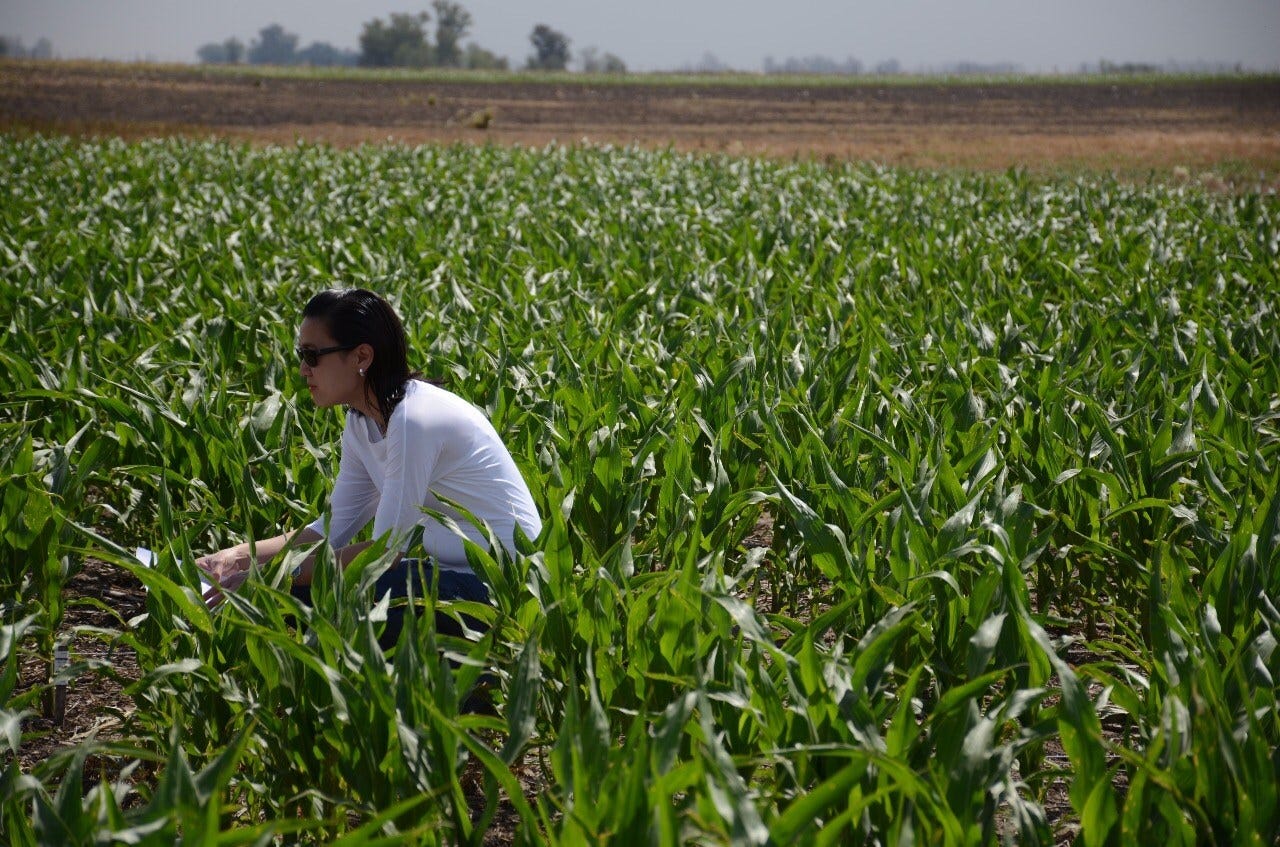Inari Chooses Indiana to Help Build Better Seeds
 CEO Ponsi Trivisvavet says Inari aims to revive plants' natural genetic diversity that has been "lost in the system."
CEO Ponsi Trivisvavet says Inari aims to revive plants' natural genetic diversity that has been "lost in the system."
Subscriber Benefit
As a subscriber you can listen to articles at work, in the car, or while you work out. Subscribe Now‘How do we feed 9 billion people by 2050?’ is a common rallying cry—and foreboding challenge—within the agricultural community. But a young company from the Boston area—now opening its next operation at Purdue Research Park in West Lafayette—says the right question to ask is, ‘How do we feed the world without destroying the planet?’ Cambridge, Massachusetts-based Inari is looking to Indiana to help answer the question and plant seeds aimed at disrupting the industry.
Inari believes the best solution to feeding the world is creating crops that are superior to conventional ones in four areas: they’re more resilient to climate change, respectful to the environment, nutrient-dense and profitable for the farmer.
“All four of those things have one common denominator, which is about genetic diversity,” says Inari Chief Executive Officer and Director Ponsi Trivisvavet. “If you can create genetic diversity, you can do those four things.”
Founded in 2016 by Flagship Pioneering, also based in Cambridge, Inari aims to revive crops’ genetic diversity that has been “lost” in the last 200 to 300 years. Trivisvavet says plants naturally have DNA—genes “that are good for picking up nitrogen,” for example—but conventional breeding methods have diluted that diversity.
“Normal breeding—what the industry has been doing for 200 to 300 years—centers on picking out the crops that we like, [determine] whether they work the way we like, and we keep selecting,” says Trivisvavet. “Along the way, because we selected so much, we chose only the ones we like, and the good genetics accidentally got lost into the system. We select this male and that female, and you keep cropping—and unintentionally—we actually lost the diversity along the way.”
Trivisvavet notes that a crop’s genome is even more complex than the human genome, and that diversity is “so important to the plant and to our system.” Therefore, Inari’s mission centers on reviving crops’ genetic diversity.
“We try to bring back the beneficial [genes] into the system,” says Trivisvavet. “You put the variations back, and therefore, don’t actually have to use chemical fertilizers that much and don’t have to apply pesticides that much, because we bring back that diversity. Everything we do [at Inari] adds no foreign genes; everything is natural.”
Inari, which has raised $55 million in funding, describes its platform as “a whole system of technology” that disrupts the $54 billion seed industry. Trivisvavet says the industry typically takes 10 years to develop one new seed and delivers less than 1 percent yield increase per year. Inari says its process delivers 20 times better crop performance at one-tenth of the cost and less than one-third of the time.
After searching the country, the young company chose the Purdue Research Park to locate what it calls a Seed Foundry. Trivisvavet likens it to a factory, but says rather than casting metal, the operation will input Inari’s genetic knowledge and produce parent seeds at a faster, more efficient rate. The 26,000 square-foot foundry will house a lab, office space and greenhouse complex.
“We feed the knowledge from Cambridge to Indiana to actually crank [seeds] out really fast [at the Foundry],” says Trivisvavet. “One [location] feeds the other in terms of knowledge.”
In addition to its technologies that revitalize crops’ genetic diversity, the company says its knowledge in data science is a critical factor. Purdue’s ability to produce talent with both agriculture and data science expertise was a key factor in choosing the location.
Data science is increasingly important, says Inari; scientists achieved a major breakthrough just a few months ago when they sequenced the bread wheat genome, unlocking a roadmap to produce better wheat varieties. The paper’s co-author, Dr. Catherine Feulliet, is chief scientific officer at Inari. Trivisvavet says she embodies the scientific might of the company’s team; 55 of its 65 employees are scientists.
Inari, which means “god of harvest” in Japanese, believes its seeds can yield crops that achieve the company’s four main goals, and ultimately, help build “a winning food system.”
“That’s the bigger picture; nobody has done this before, in terms of addressing five things at the same time,” says Trivisvavet. “That’s the piece that I’m extremely excited about.”
Trivisvavet says several key factors led Inari to choose Purdue for its additional location.
Trivisvavet says Inari’s team has power hitters on “a mission to make a difference.”
